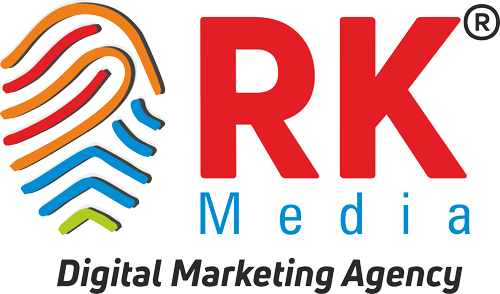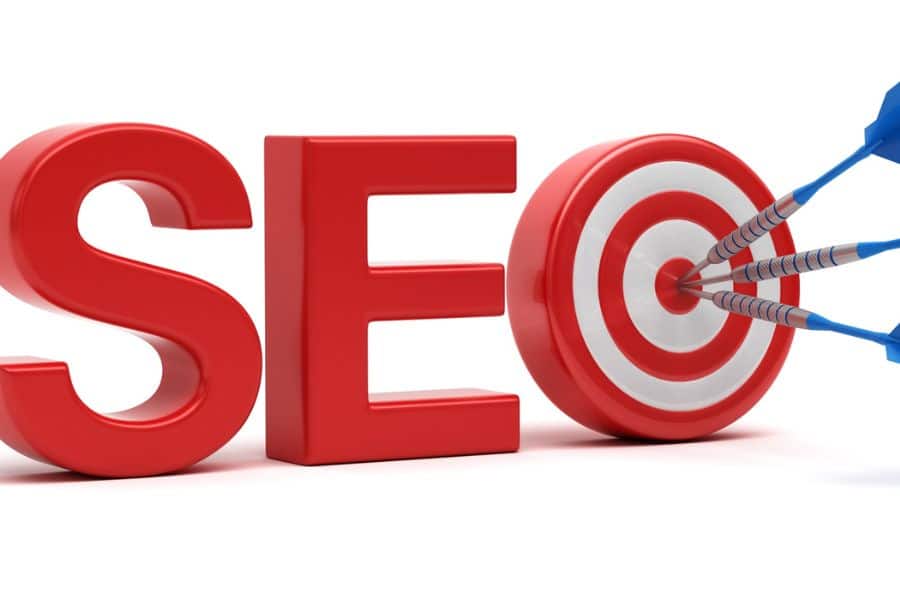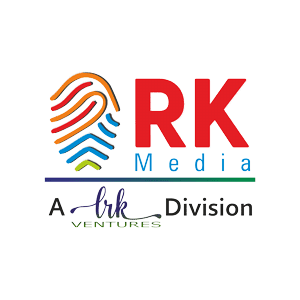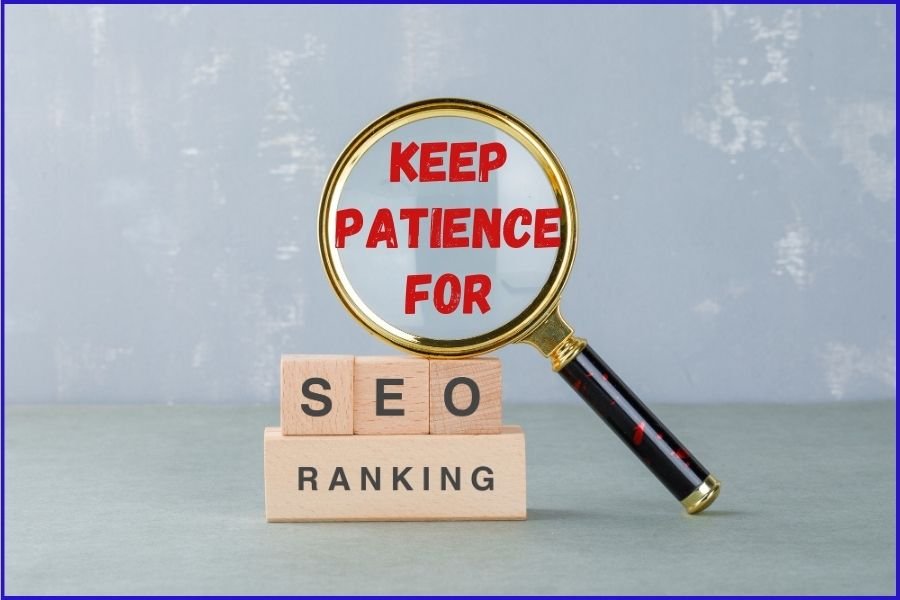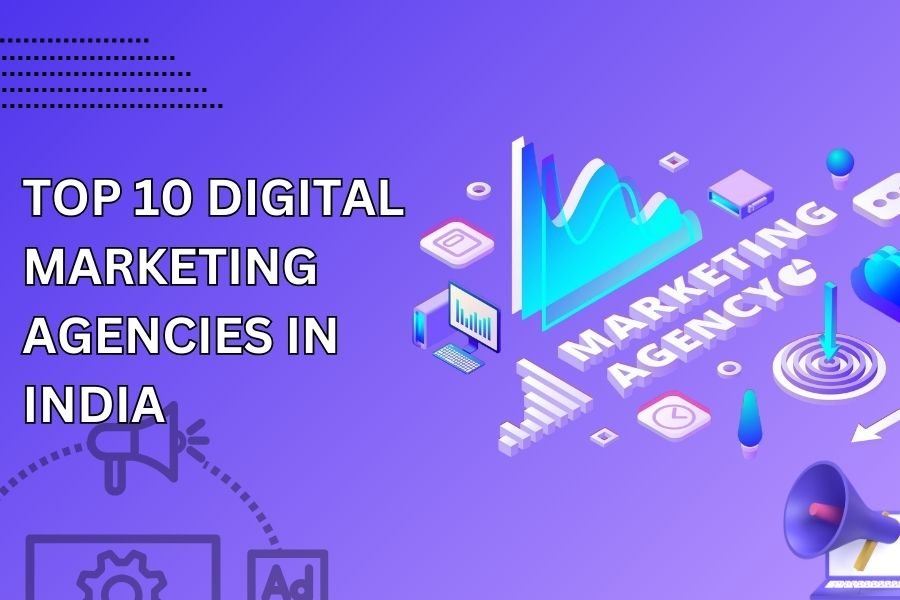Revitalizing Hospitality: A Comprehensive Guide to Digital Marketing Solutions for Hotels
Introduction
In the contemporary landscape of the hospitality industry, the role of digital marketing has become pivotal for hotels striving to stay competitive and relevant. This comprehensive guide aims to shed light on the multifaceted aspects of digital marketing solutions tailored specifically for hotels. As we delve into this subject, we will explore the intricacies of leveraging digital strategies to enhance visibility, engage with target audiences, and ultimately drive business growth in the hospitality sector.
Brief overview of the hotel industry
The hotel industry is a dynamic and ever-evolving sector that plays a crucial role in the global economy. From luxury resorts to budget accommodations, hotels cater to diverse needs and preferences of travelers. In recent years, the industry has witnessed significant transformations, influenced by technological advancements, changing consumer behaviors, and global events.
The hospitality landscape is characterized by fierce competition, with hotels vying for the attention and patronage of discerning guests. Customer expectations have soared, necessitating hotels to adapt and embrace innovative approaches to attract and retain clientele. Understanding the challenges and opportunities within this industry is paramount for devising effective digital marketing strategies that resonate with the unique demands of the hotel sector.
As we explore the intricacies of digital marketing for hotels, it’s crucial to recognize the diverse segments within the industry, ranging from boutique establishments to large chains. Each segment presents distinct challenges and opportunities, shaping the strategies employed to harness the power of digital platforms.
Importance of digital marketing for hotels
In the contemporary landscape of the hospitality industry, digital marketing has emerged as an indispensable tool for hotels aiming to stay competitive and thrive in the market. The importance of digital marketing for hotels can be elucidated through various facets:
1. Global Reach and Visibility: Digital marketing enables hotels to transcend geographical boundaries and tap into a global audience. Through strategic online campaigns, hotels can enhance their visibility, attracting potential guests from around the world. This not only broadens their reach but also positions them as accessible choices in the eyes of international travelers.
2. Targeted Marketing: One of the key advantages of digital marketing is the ability to tailor campaigns to specific demographics. Hotels can leverage data analytics and customer profiling to create targeted marketing strategies. By understanding the preferences and behaviors of their audience, hotels can personalize their messaging, increasing the likelihood of attracting the right clientele.
3. Enhanced Guest Engagement: Digital marketing facilitates direct communication with guests, both before and after their stay. Social media platforms, email marketing, and online promotions create opportunities for hotels to engage with their audience, build relationships, and gather feedback. This not only enhances the overall guest experience but also fosters brand loyalty.
4. Cost-Effectiveness: Compared to traditional forms of advertising, digital marketing offers a cost-effective means for hotels to promote their services. Online campaigns, social media promotions, and search engine optimization (SEO) strategies often provide a higher return on investment (ROI) for hotels, making it a financially prudent choice.
5. Real-Time Analytics: Digital marketing platforms provide hotels with real-time analytics and insights into the performance of their campaigns. This data allows for quick adjustments and optimizations, ensuring that marketing efforts are aligned with the ever-evolving preferences of the target audience.
Pain Points in Digital Marketing for Hotels
While digital marketing presents numerous advantages, hotels also face specific challenges in implementing effective strategies. Understanding these pain points is crucial for devising solutions and maximizing the benefits of digital marketing:
1. Overcoming Saturation: In a highly competitive online landscape, hotels often struggle to stand out amidst the plethora of digital content. Breaking through the saturation requires innovative and compelling content, as well as strategic use of advertising channels to capture the audience’s attention.
2. Managing Online Reviews: Digital marketing has amplified the impact of online reviews on a hotel’s reputation. Negative reviews can spread rapidly, affecting bookings and overall perception. Hotels must actively monitor and manage online reviews, promptly addressing concerns and showcasing positive feedback to maintain a positive image.
3. Adapting to Algorithm Changes: Search engine algorithms and social media algorithms are constantly evolving. Hotels must stay abreast of these changes to ensure their digital marketing efforts remain effective. This necessitates ongoing education and adaptability to new technologies and trends.
4. Data Security and Privacy Concerns: Collecting and utilizing guest data for personalized marketing comes with the responsibility of safeguarding privacy. Hotels must navigate the intricacies of data security and compliance with regulations to build trust with their guests and avoid legal complications.
5. Integrating Technology: Adopting and integrating new technologies into existing systems can be a challenge for hotels. From implementing robust booking systems to incorporating AI-driven chatbots, the integration of technology requires careful planning and execution to enhance the overall guest experience.
Limited Online Visibility
In the digital age, having a strong online presence is crucial for the success of any business, and the hospitality industry is no exception. Many hotels face the challenge of limited online visibility, making it difficult for potential guests to discover and engage with their offerings. This section explores the various facets contributing to limited online visibility and proposes digital marketing solutions to overcome these challenges.
1. SEO Optimization: Discuss the importance of Search Engine Optimization (SEO) for hotels and how it can enhance online visibility. Explore key SEO strategies such as keyword optimization, on-page SEO, and backlink building, emphasizing their role in improving a hotel’s search engine rankings.
2. Social Media Engagement: Examine the impact of social media on the hospitality industry and how hotels can leverage platforms like Facebook, Instagram, and Twitter to increase their online visibility. Highlight the significance of engaging content, regular posting, and audience interaction to build a strong social media presence.
3. Local Listings and Google My Business: Detail the significance of local listings and having an updated Google My Business profile for hotels. Explain how accurate business information, customer reviews, and high ratings contribute to improved visibility on local search results.
4. Content Marketing: Explore the role of content marketing in enhancing online visibility. Discuss the creation of valuable and relevant content, including blog posts, articles, and videos, to establish the hotel as an authoritative and trustworthy source within the industry.
Difficulty in standing out among competitors
With numerous hotels vying for the attention of potential guests, standing out in a competitive market becomes a significant challenge. This section delves into the reasons behind the difficulty in differentiation and proposes effective digital marketing solutions to help hotels distinguish themselves from competitors.
1. Unique Selling Proposition (USP) Showcase: Emphasize the importance of identifying and showcasing a hotel’s unique selling propositions. Discuss how digital marketing can be utilized to highlight special amenities, services, or experiences that set the hotel apart from competitors.
2. Online Reputation Management: Examine the impact of online reviews and reputation on a hotel’s ability to stand out. Discuss strategies for managing online reputation, responding to reviews, and encouraging satisfied guests to share their positive experiences on various platforms.
3. Visual Storytelling: Explore the power of visual storytelling in digital marketing for hotels. Discuss the use of high-quality images, videos, and virtual tours to create a compelling narrative that captivates potential guests and sets the hotel apart from competitors.
4. Targeted Advertising Campaigns: Discuss the benefits of targeted advertising campaigns to reach specific demographics and segments of the market. Explore platforms like Google Ads and social media advertising, emphasizing the importance of tailoring campaigns to resonate with the target audience.
Low search engine rankings
Securing a prominent position on search engine results pages is paramount for hotels to attract potential guests. Low search engine rankings can significantly impact a hotel’s visibility and, consequently, its bookings. This section will address the factors contributing to low search engine rankings and offer a comprehensive guide on employing digital marketing strategies to improve rankings.
1. Identifying Ranking Challenges: Hotels may face low search engine rankings due to factors such as poor website optimization, lack of quality backlinks, or not utilizing local SEO effectively. This subsection will break down these challenges, emphasizing the need for an SEO audit to identify specific issues affecting rankings.
2. Digital Marketing Solutions: This part will focus on actionable solutions to boost search engine rankings. It will cover on-page SEO techniques, link-building strategies, and the importance of creating local SEO campaigns tailored to the hotel’s location. The guide will stress the role of relevant keywords in website content, meta tags, and local business listings to optimize for search engine algorithms.
Solutions Offered by a Digital Marketing Company
In the realm of hospitality, the role of digital marketing has become pivotal for hotels seeking to enhance their online presence and attract a wider audience. A proficient digital marketing company can offer a range of solutions tailored to the unique needs of the hotel industry.
1. Social Media Management: Digital marketing companies excel in creating and implementing social media strategies that engage and captivate potential guests. Platforms like Facebook, Instagram, and Twitter are utilized to showcase the hotel’s amenities, share customer testimonials, and promote special offers.
2. Content Marketing: Compelling content is at the heart of any successful digital marketing campaign. From blog posts highlighting local attractions to visually appealing videos showcasing the hotel’s facilities, content marketing ensures that the hotel remains relevant and interesting to its target audience.
3. Email Marketing Campaigns: Digital marketing companies design and execute targeted email campaigns to keep past and potential guests informed about promotions, events, and updates. This personalized approach helps build and maintain relationships with the hotel’s audience.
4. Online Reputation Management: Maintaining a positive online reputation is crucial for hotels. Digital marketing companies monitor and manage online reviews, ensuring that positive feedback is highlighted, and any negative comments are addressed promptly and effectively.
5. Paid Advertising Strategies: From pay-per-click (PPC) campaigns to display advertising, digital marketing companies leverage paid strategies to enhance the hotel’s visibility in search engine results and across various online platforms.
Search Engine Optimization (SEO)
Search Engine Optimization (SEO) is a fundamental aspect of digital marketing, playing a pivotal role in enhancing a hotel’s visibility on search engines like Google. By optimizing various elements, hotels can ensure that they appear prominently when potential guests search for relevant keywords.
1. On-Page SEO: This involves optimizing the hotel’s website content, meta tags, and headers to align with relevant keywords. An effective on-page SEO strategy ensures that search engines recognize the hotel as a relevant result for user queries.
2. Local SEO: For hotels, local visibility is paramount. Digital marketers optimize the hotel’s online presence for local searches, ensuring that it appears in local directories, Google My Business, and other location-based platforms.
3. Link Building: A robust link-building strategy is crucial for improving a hotel’s authority in the eyes of search engines. Digital marketers work on acquiring high-quality backlinks from reputable sources, enhancing the hotel’s credibility and search engine rankings.
4. Mobile Optimization: Given the prevalence of mobile device usage, digital marketers ensure that the hotel’s website is optimized for mobile users. This includes responsive design, fast loading times, and an overall seamless user experience.
Keyword optimization for improved rankings
In the fiercely competitive landscape of the hospitality industry, mastering digital marketing is paramount for hotels to thrive. One of the cornerstones of a successful digital marketing strategy is keyword optimization, a practice that significantly influences a hotel’s online visibility and search engine rankings.
1. Understanding Digital Marketing: Digital marketing encompasses a wide array of strategies, and at its core is the art of connecting with potential guests through various online channels. From search engines to social media platforms, the key lies in crafting a robust online presence that captivates and engages the target audience.
2. Importance of Keyword Optimization: Digital marketing success starts with strategic keyword optimization. By identifying and incorporating relevant keywords throughout a hotel’s online content, websites can align themselves with the search queries of potential guests. This optimization improves the chances of appearing in search engine results pages (SERPs), subsequently boosting the hotel’s online visibility.
Local SEO strategies to enhance visibility
1. Harnessing the Power of Local SEO: Local Search Engine Optimization (SEO) is a critical component for hotels aiming to attract guests within a specific geographic area. Optimizing for local search ensures that when potential guests search for accommodation options in a particular location, the hotel appears prominently in the results.
2. Google My Business Optimization: One of the first steps in local SEO is optimizing the hotel’s Google My Business (GMB) profile. This involves providing accurate business information, such as location, contact details, business hours, and high-quality images. Encouraging positive reviews on GMB also contributes to enhanced visibility.
3. Localized Content Creation: Creating content that reflects the local flavor and addresses the unique needs of the target audience in a specific location is crucial. This can include information about local attractions, events, and special offers tailored to the preferences of the local community.
4. Mobile Optimization for Local Searches: Given the prevalence of mobile device usage for local searches, ensuring that the hotel’s website is mobile-friendly is imperative. Mobile optimization enhances the user experience and positively influences search engine rankings for local queries.
Emerging Trends in Digital Marketing for Hotels
Digital marketing for hotels is an ever-evolving landscape, with trends shaping the industry and influencing how hospitality businesses connect with their audience. In this section, we delve into the latest and most impactful trends in digital marketing for hotels.
1. Personalized Marketing Campaigns: Explore how hotels are leveraging customer data to create highly personalized marketing campaigns. From targeted email marketing to tailored social media ads, discover how personalization enhances guest engagement and loyalty.
2. Influencer Collaborations: Uncover the power of influencer marketing in the hospitality sector. Learn how hotels are partnering with influencers to reach new audiences, showcase their unique offerings, and build a credible online presence.
3. Augmented Reality (AR) Experiences: Delve into the integration of augmented reality in digital marketing for hotels. Understand how AR enhances the customer experience, allowing potential guests to virtually explore hotel facilities, rooms, and amenities before making a reservation.
4. Video Content Dominance: Explore the rise of video content and its impact on hotel marketing. From virtual tours to engaging promotional videos, discover how hotels are leveraging video across platforms to capture the attention of their target audience.
5. Chatbots and AI-Powered Customer Service: Examine the role of chatbots and artificial intelligence in enhancing customer service for hotels. Understand how chatbots streamline booking processes, provide instant support, and contribute to a seamless guest experience.
Voice search optimization
As voice-activated devices become increasingly prevalent, hotels must adapt their digital marketing strategies to capitalize on the growing trend of voice search. This section provides a detailed exploration of voice search optimization for hotels.
1. Understanding Voice Search Dynamics: Delve into the mechanics of voice search and how it differs from traditional text-based searches. Gain insights into user behavior and preferences when utilizing voice-activated assistants such as Siri, Google Assistant, and Alexa.
2. Long-Tail Keyword Optimization: Explore the significance of long-tail keywords in voice search optimization. Learn how hotels can tailor their digital content to align with the natural language queries users employ when using voice search, enhancing their visibility in search results.
3. Localized Voice Search Optimization: Examine the importance of localized content in voice search. Understand how hotels can optimize their online presence to cater to users seeking nearby accommodation options, leveraging geographically relevant information.
4. Voice-Responsive Website Design: Uncover the role of website design in accommodating voice search users. Explore strategies for creating voice-responsive websites that enhance the user experience for guests searching for hotel information using voice commands.
Video marketing strategies
Video marketing has become a pivotal component of digital marketing, especially for hotels aiming to captivate and engage their audience. This section will explore various strategies hotels can employ to leverage the power of video in their marketing campaigns:
1. Virtual Tours and Room Showcases: Discuss the impact of virtual tours and room showcases in providing potential guests with a vivid preview of the hotel’s accommodations. Highlight successful examples and how these videos contribute to conversion rates.
2. User-Generated Content: Explore how hotels encourage guests to share their experiences through videos on social media. Examine the influence of user-generated content on building trust and authenticity in the hotel’s brand.
3. Live Streaming Events: Discuss the use of live streaming for events, promotions, or behind-the-scenes glimpses. Analyze how this real-time engagement fosters a sense of connection with the audience.
4. Storytelling through Video: Highlight the power of storytelling in hotel marketing and how videos can effectively convey the brand’s narrative. Discuss techniques for creating emotionally resonant videos that leave a lasting impression.
Conclusion
In conclusion, the ever-evolving landscape of the hospitality industry necessitates a robust and innovative approach to stay competitive, and “Revitalizing Hospitality: A Comprehensive Guide to Digital Marketing Solutions for Hotels” serves as a beacon in this transformative journey. The focus on digital marketing emerges as a pivotal strategy, offering hotels a dynamic toolkit to enhance their online presence, engage with a broader audience, and ultimately thrive in the digital era. The insights and strategies outlined in this comprehensive guide shed light on the significance of leveraging digital marketing solutions to not only attract but also retain guests in an increasingly interconnected world.
As hotels embark on their digital marketing endeavors, one name stands out as a reliable partner in this transformative process RK Media Digital Marketing Agency. With a proven track record of delivering cutting-edge solutions tailored to the hospitality sector, RK Media emerges as a key player in the pursuit of effective digital marketing strategies. Their expertise encompasses the intricacies of online brand building, social media management, search engine optimization, and other facets crucial for a hotel’s success in the digital realm.
In the dynamic world of hospitality, where first impressions are often made online, the implementation of the digital marketing solutions elucidated in this guide becomes not just a choice but a necessity. As hotels navigate the intricacies of the digital landscape, the guidance provided ensures a seamless integration of technology and marketing, fostering a renewed and revitalized hospitality experience for both guests and hoteliers alike. RK Media Digital Marketing Agency stands as a beacon, guiding hotels toward a future where digital marketing excellence is not just an aspiration but a reality, defining the very essence of a modern and thriving hospitality industry.
Image Reference: Freepik
Disclaimer: All trademarks, logos, and brand names are the property of their respective owners. All company, product, and service names used in this website are for identification purposes only. Use of these names, trademarks, and brands does not imply endorsement.
